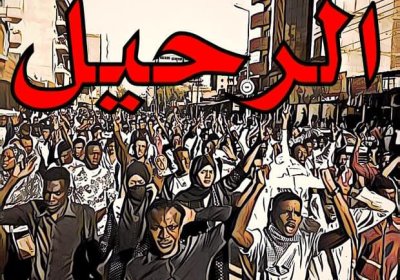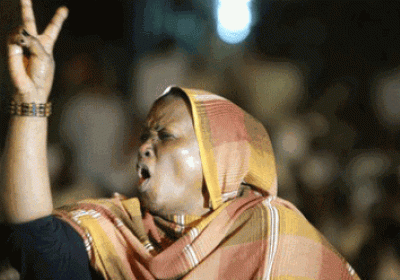In Sudan, a multifaceted civil opposition is posing a serious threat to the continued existence of Bashir’s dictatorial regime after weeks of protests, writes Mohammed Elnaiem.
Sudan
In late December Green Left Weekly spoke to Younis Hamad Birama and Khalid Hassan from the Democratic Consciousness Forum, a Perth-based democratic and secular organisation founded by Sudanese refugees, about the wave of protests sweeping Sudan following the dramatic increase in the price of bread. Despite a brutal crackdown by security forces, including the killing of at least 40 people, the protests have spread an
Street protests have broken out in at least seven cities across Sudan, beginning on December 19, in response to the price of bread increasing nearly threefold. They are rocking the repressive regime of Omar al-Bashir and echoing the protests against austerity and price rises that swept the country in January that were brutally repressed.
Australian group the Socialist Alliance released the statement below on February 1.
A wave of street demonstrations have spread across major cities in Sudan in protest against new austerity measures pushed by the North African country’s government.
 The Sudan Democracy First Group is an umbrella group of leading Sudanese independent and democratic civil society sectors. It aims to promote the voices and interests of marginalised groups, as well as peace and human rights. Below is its International Women's Day statement released on March 8.
* * *
The Sudan Democracy First Group is an umbrella group of leading Sudanese independent and democratic civil society sectors. It aims to promote the voices and interests of marginalised groups, as well as peace and human rights. Below is its International Women's Day statement released on March 8.
* * *
 South Kordofan residents at a makeshift UN camp near Kadugli.
Amnesty International released a report on August 3 detailing horrific war crimes committed against the people of South Kordofan by the Sudanese Armed Forces (SAF) and its militias.
South Kordofan residents at a makeshift UN camp near Kadugli.
Amnesty International released a report on August 3 detailing horrific war crimes committed against the people of South Kordofan by the Sudanese Armed Forces (SAF) and its militias.
Sudan’s ruling National Congress Party (NCP) persisted with April 13-15 national elections, despite widespread condemnation of the process from inside and outside the country. Sudanese President Omer al-Bashir, who came to power in a 1989 coup, contested the presidency among 15 mostly unknown candidates. The election was boycotted by opposition groups. They have called for an inclusive consultation process to resolve the country’s substantial problems, establishing a transitional government, and immediately ending the repression of dissent as prerequisites for free and fair elections.
- Previous page
- Page 3
- Next page









